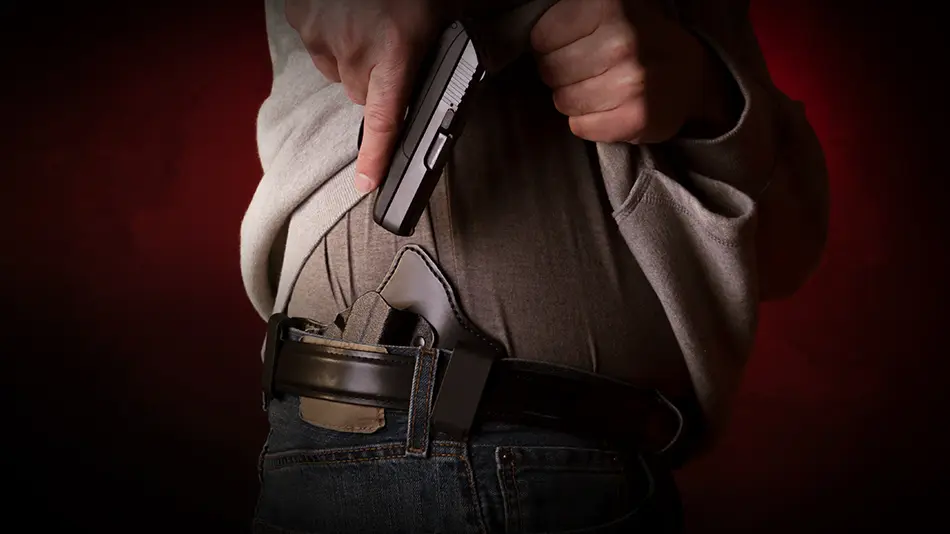Did you know Texas law may treat self-defense cases differently based on the location where force (or deadly force) was used? For instance, you generally have more legal protections for self-defense in your home than you do in a public place. Welcome to a world where the legal system treats you differently depending upon where you draw your weapon. This difference in treatment comes from the legal protections of the Castle Doctrine.
What is the Castle Doctrine?
The “Castle Doctrine” is the legal philosophy based on an individual’s right to defend themselves in their own home without a duty to retreat. Not all states have a Castle Doctrine, but rest assured, Texas does! While the Texas Penal Code does not use the words “Castle Doctrine,” Texas’ version of this law is located in Texas Penal Code §§ 9.31 and 9.32. The law will presume that you have a reasonable belief that force or deadly force is immediately necessary when you are defending against someone forcefully entering or attempting to enter, or forcefully removing or attempting to remove you from your occupied habitation, occupied vehicle, or occupied place of employment. That’s right! The Castle Doctrine even extends to you when you’re in your vehicle and at your workplace.
What Does the Legal Presumption Do for Me?
So how does this legal presumption protect you? When you are presumed to have a reasonable belief, a jury will be instructed that if a given set of circumstances exists (for instance, the perpetrator broke into your house), the law will presume reasonable your belief in the immediate necessity of using deadly force. Deadly force is, therefore, legally justified. Essentially, the Castle Doctrine stops the prosecutor from legal second-guessing or “Monday morning quarterbacking.”
Limits of the Castle Doctrine
Does the Castle Doctrine protect me in my detached shed or garage? The answer is no. For purposes of the Castle Doctrine, Texas law defines habitation as “a structure or vehicle adapted for the overnight accommodation of persons.” Because you do not stay the night in your shed, you will not get the legal protections of the Castle Doctrine if someone breaks into it.
Also, don’t forget: standard self-defense laws and rules of engagement still apply. The Castle Doctrine is not a “get out of jail free” card, and it does not allow you to use deadly force when it is clearly not reasonable or immediately necessary under the circumstances. The government can rebut these legal presumptions.
Additionally, you will not have these powerful protections if you provoke the person against whom the force was used, or if you were engaging in criminal activity (other than a Class C misdemeanor regulating traffic) at the time the force or deadly force was used.
So, do not draw your weapon unless it is immediately necessary to defend yourself. But if you are forced to engage an assailant in your home, vehicle, or place of employment, you may have the benefits of the Castle Doctrine on your side.
If you have any questions regarding what constitutes a “castle” in Texas, call Texas LawShield and ask to speak to your Independent Program Attorney.
The preceding should not be construed as legal advice nor the creation of an attorney-client relationship. This is not an endorsement or solicitation for any service. Your situation may be different, so please contact your attorney regarding your specific circumstances. Because the laws, judges, juries, and prosecutors vary from location to location, similar or even identical facts and circumstances to those described in this presentation may result in significantly different legal outcomes. This presentation is by no means a guarantee or promise of any particular legal outcome, positive, negative, or otherwise.





Since detached garage is not part of my castle, how about attached garage, is it considered my castle, then?
I have a 8 ft wooden fence around my back yard, and the fence gates are kept locked. Does the Castle Doctrine protect me if I defend myself against someone in my back yard?
More of a question than a comment. Why the difference between your work place and your shed? Your work place is not adapted for the overnight accommodation of the individual any more than a shed is. You work in both places.
Does the Castle Doctrine protect me in my detached shed or garage? The answer is no.
So, my question is: if the garage is considered an attached garage (under the roof line of the home) does the doctrine apply? If not, are you saying that I have no right to protect my property if a person breaks into the garage and attempts to steal my property? In this scenario, what is the difference if they break into my home to steal property. They still have broken the plane of the house and have made illegal entry.
I am a small time rancher. My shed is also my work place. Does this mean I am covered when working in my shop and stock sheds?
When drawing a gun in the heat of life threatening situation is not the time to worry about law. Point and shoot, self defense. The actor shouldn’t have been there.